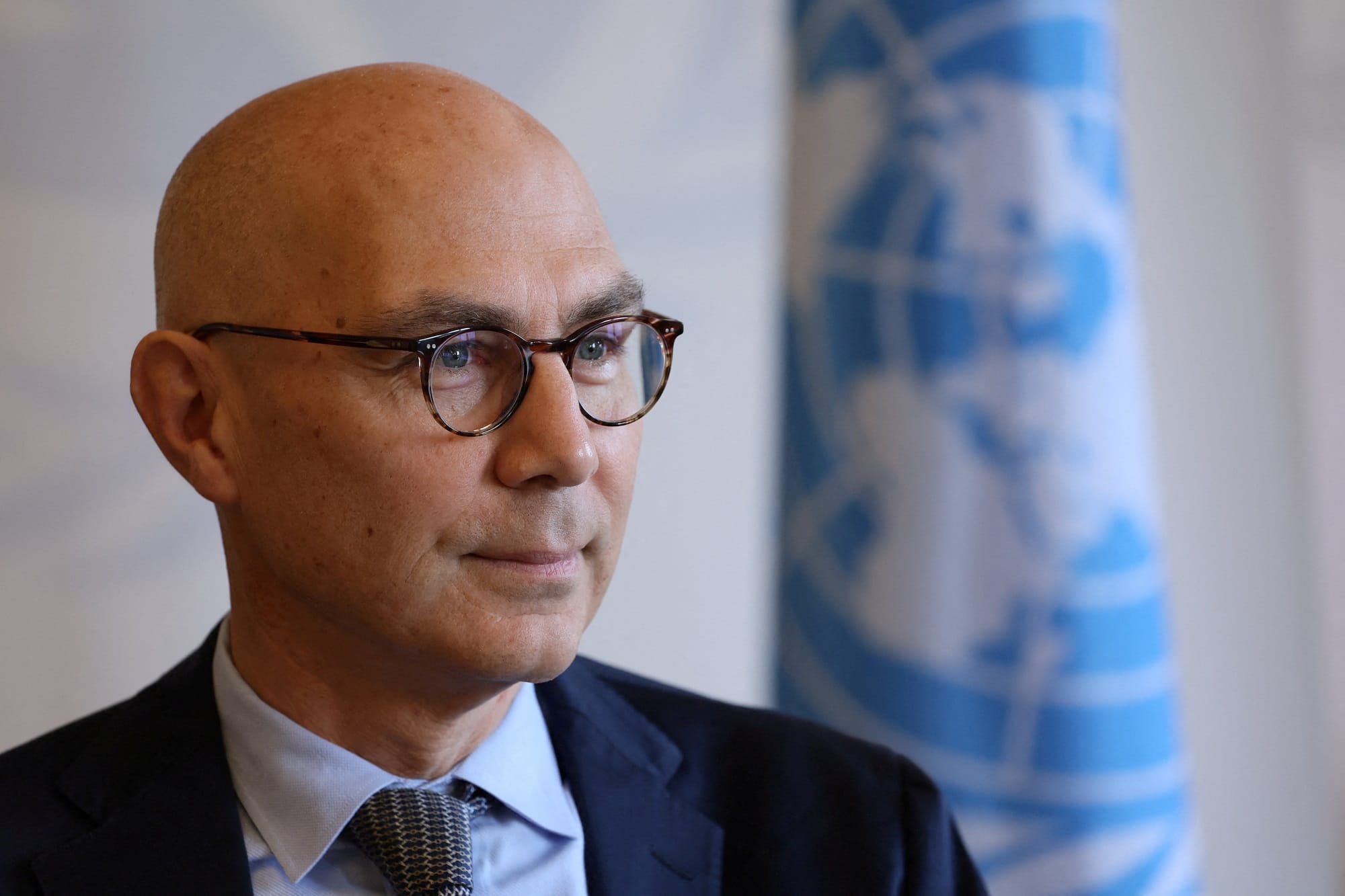On Friday, the United Nations High Commissioner for Human Rights, Volker Türk, expressed his concern about what he described as Tunisia’s “retreat” in the field of human rights.
This came according to a statement published on the website of the United Nations Office for Human Rights (OCHA), while the Tunisian Ministry of Foreign Affairs expressed its rejection of the statement, calling for “examination of accuracy and objectivity before issuing positions that deviate from reality.”
Türk expressed, according to the statement, his deep concern about what he described as “the increasing restrictions imposed on the right to freedom of expression and freedom of the press in Tunisia.”
He added, “It is disturbing to see Tunisia, a country that once bore so much hope, retreat and lose many of the gains made in the field of human rights in the last decade.”
Türk called on the Tunisian authorities to “change course,” considering that in the past three months, “on five occasions, they have adopted vaguely worded legislation to hold accountable, arrest and convict 6 journalists, including the Anti-Terrorism Law, and Decree 54 related to cybercrime, which contains provisions that include financial and prison penalties.” “.
The statement added, “The decision of the Tunisian parliament office to prevent journalists from covering the work of the committees, and the other decision to prevent media circulation in two cases of alleged conspiracy in which dozens of people have been arrested since last February, is undermining transparency in public opinion issues and preventing journalists from transmitting information from Citizens’ right.
He considered that “preventing journalists from performing their work freely would undermine the crucial role of independent media and negatively affect society.”
For its part, Tunisia expressed its rejection of the UN Commissioner’s statement, calling for “examination of accuracy and objectivity before issuing unrealistic positions,” according to a statement published by the Ministry of Foreign Affairs on its Facebook account.
The statement said: “Tunisia reaffirms that freedom of opinion and expression is guaranteed by the text of the constitution and enshrined in reality, and that the judicial consequences and arrests referred to in the statement were based on acts criminalized by Tunisian law and have nothing to do with the exercise of freedom of opinion and expression.”
The Foreign Ministry called on “Tunisia’s partners and all parties to respect the will and choices of the Tunisian people and their aspirations for reform and justice, and to refrain from attempts to interfere in its internal affairs and influence the course of the judiciary in it.”
On Thursday, a Tunisian court released journalist Ziad Al-Hani, two days after he was arrested pending investigation in a case related to combating information and communication technology crimes.
In September 2022, Tunisian President Kais Saied issued Decree 54 related to communication crimes and information systems, which imposes penalties on those who spread rumors and false news, in a move that aroused widespread concern among journalists and human rights activists.
In the recent period, a number of Tunisian journalists were referred to the judiciary, some of whom were released, while others are still in detention, on the grounds of writing articles or statements.





